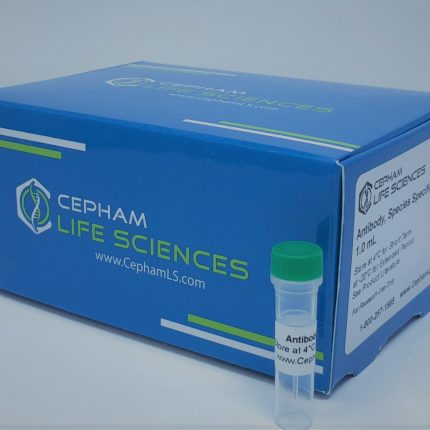Aliases
P105-RB; PP105; PP110; RB-1; RB1; Retinoblastoma-associated protein
Antibody Type
Polyclonal Antibody
Uniprot ID
Swiss-Prot#:P06400;
NCBI Gene#:5925
Immunogen
Peptide sequence around phosphorylation site of threonine 826 (K-M-T(p)-P-R) derived from Human Retinoblastoma.
Raised In
Rabbit
Species Reactivity
Human Mouse Rat
Tested Applications
WB IF Recommended dilution: Western blotting: 1:500~1:3000, Immunofluorescence: 1:100~1:500
Background / Function
Key regulator of entry into cell division that acts as a tumor suppressor. Promotes G0-G1 transition when phosphorylated by CDK3/cyclin-C. Acts as a transcription repressor of E2F1 target genes. The underphosphorylated, active form of RB1 interacts with E2F1 and represses its transcription activity, leading to cell cycle arrest. Directly involved in heterochromatin formation by maintaining overall chromatin structure and, in particular, that of constitutive heterochromatin by stabilizing histone methylation. Recruits and targets histone methyltransferases SUV39H1, SUV420H1 and SUV420H2, leading to epigenetic transcriptional repression. Controls histone H4 ‘Lys-20’ trimethylation. Inhibits the intrinsic kinase activity of TAF1. Mediates transcriptional repression by SMARCA4/BRG1 by recruiting a histone deacetylase (HDAC) complex to the c-FOS promoter. In resting neurons, transcription of the c-FOS promoter is inhibited by BRG1-dependent recruitment of a phospho-RB1-HDAC1 repressor complex. Upon calcium influx, RB1 is dephosphorylated by calcineurin, which leads to release of the repressor complex By similarity. In case of viral infections, interactions with SV40 large T antigen, HPV E7 protein or adenovirus E1A protein induce the disassembly of RB1-E2F1 complex thereby disrupting RB1’s activity.
Conjugate
Unconjugated
Storage Buffer
Rabbit IgG in phosphate buffered saline (without Mg2+ and Ca2+), pH 7.4, 150mM NaCl, 0.02% sodium azide and 50% glycerol.
Form
liquid
Storage
Shipped at 4°C. Upon delivery aliquot and store at -20°C or -80°C. Avoid repeated freeze.
Purity
Antibodies were produced by immunizing rabbits with synthetic phosphopeptide and KLH conjugates. Antibodies were purified by affinity-chromatography using epitope-specific phosphopeptide. Non-phospho specific antibodies were removed by chromatogramphy using non-phosphopeptide.
Modification
Phospho-Thr826







